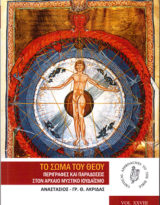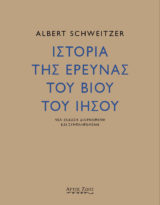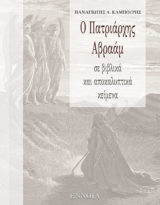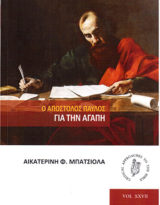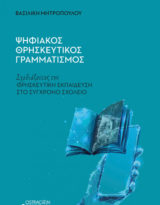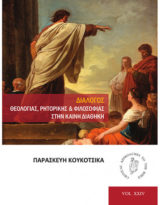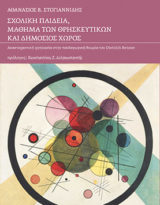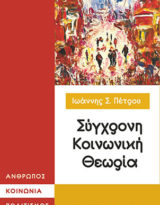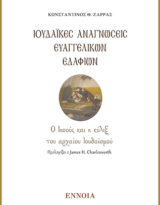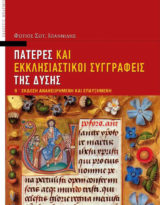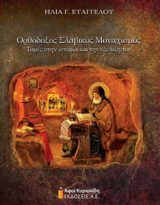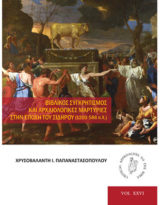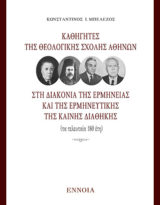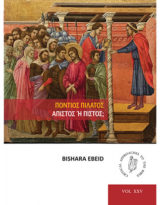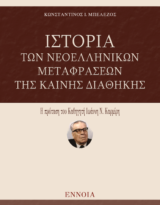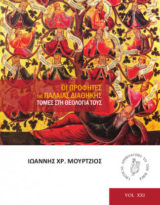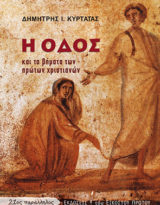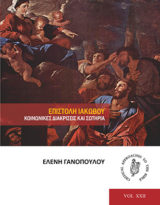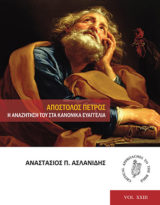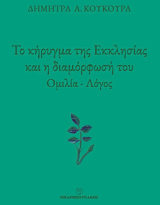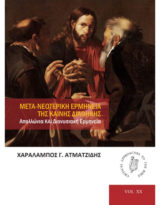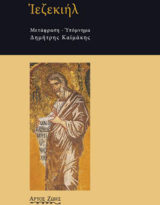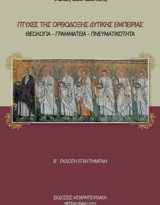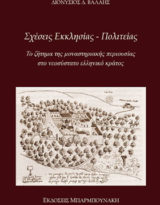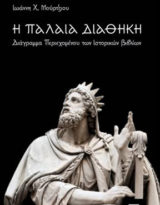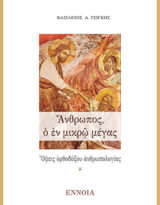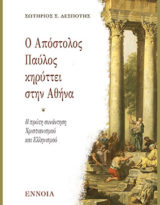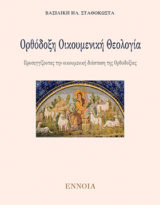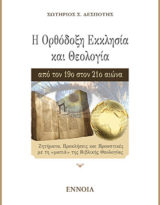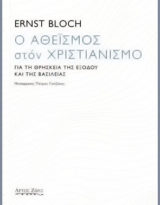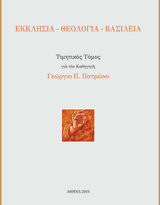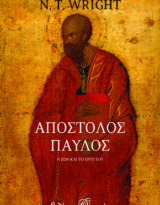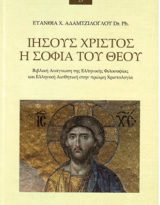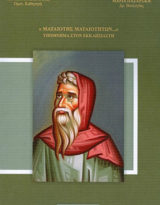Φέτος γιορτάζει τα 25 χρόνια της η Ρωσική Ορθόδοξη αδελφότητα της Μεταμορφώσεως (Transfiguration Brotherhood), ιδρυτής και πνευματικός πατέρας της οποίας είναι ο π. Georgy Kochetkov, πρύτανης της Ορθόδοξης Θεολογικής Σχολής του Αγ. Φιλαρέτου της Μόσχας. Τόσο η αδελφότητα, όσο και η Θεολογική Σχολή, αποτελούν μοναδικές οάσεις πνευματικότητας και λειτουργικής αναγέννησης στη σύγχρονη Ρωσία, που είχε ως προσκεκλημένος των την ευκαιρία να βιώσει προσωπικά, και μάλιστα δις, ιδίοις όμμασι ο ομότιμος καθηγητής του ΑΠΘ κ. Πέτρος Βασιλειάδης.
Πριν από δύο μήνες, κατά τη διάρκεια του ετήσιου συνεδρίου Ορθόδοξης πνευματικότητας του Bose, ο καθηγητής είχε την ευκαιρία να συζητήσει με την κοσμητόρισσα της Θεολογικής Σχολής του Αγ. Φιλαρέτου κ. Zoya Dashevskaya, για το μέλλον της θεολογικής εκπαίδευσης, απαντώντας σε ερωτήσεις, τις οποίες η κ. Dashevskaya απηύθυνε και στον Μητροπολίτη Διοκλείας κ. Κάλλιστο, τον κοσμήτορα της Θεολογικής Σχολής του Αγ. Βλαδιμήρου, π. John Behr, καθώς και τον ίδιο τον π. Georgy. Οι ερωτήσεις και απαντήσεις του κ. Βασιλειάδη, αλλά και των υπολοίπων, δημοσιεύτηκαν στα αγγλικά και τα ρωσικά, από την υπεύθυνη τύπου της Σχολής κ. Σοφίας Androsenko, με τίτλο «Στροφή στο ανθρώπινο πρόσωπο». Οι απαντήσεις του κ. Βασιλειάδη έχουν ως εξής:
Q: What, in your opinion, is the most important theme in contemporary theological education?
Petros Vassiliadis: The most important issue in Orthodox theological education is to rediscover the ethical dimension of Christian faith. I am saying this because for many centuries the Christological emphasis, which went beyond the traditional Trinitarian one, of course, with the pneumatological dimension, and the theological emphasis on the doctrine, at the expense of Christian ethics, deprived the understanding of our Orthodox conscience, and, I would say also, of Christian consciousness of the importance of our behaviour towards our neighbour, towards the others, towards the community in general. This is because there was, especially in the 2nd millennium, an over-emphasis on the differences between one denomination and the other, between East and West. And in this defensive attitude, the issues that were developed were rather the antithesis between the various spiritualities, the various traditions. That’s why the dialogue is very important for the future of theological education. Thus, we should realize we should not concentrate on the exclusiveness of our faith, the Orthodox faith, which is for us given, which is true. But to overemphasize this exclusiveness is almost to exclude the others. This was not the primary dimension of theological education in the previous era, at its origins. I would say ‘at its origins’ because, originally, theological education was the catechesis. The catechetical school of Alexandria, for instance, was the first attempt to move independently from the Eucharistic communion. The Eucharistic community, in fact, put the emphasis on the awareness of the whole people of God, not only of leaders and priests, theologians. So, in order to defend Christianity against the pagan religion, which was the first enemy, they had to develop the so-called philosophical aspect, and it was developed with theological, mainly doctrinal issues. And this made us have forgotten the primary ethical dimension, which was the Sermon on the Mount. The Sermon on the Mount originally was about behavior, attitude: how we are supposed to behave in regard to our neighbour. This was gradually forgotten or left aside, because in the Greek mentality philosophy was the primary issue. Thus, the emphasis was on the doctrinal issue, in defense of the faith, to answer the questions of what we believe, what is our philosophical understanding of our faith. Consequently, there was lack of attention to our practice of faith. In my view, this situation is observed not only in Orthodox education but in all Christian education in general. Being now the president of the World Conference of Associations of Theological Institutions (WOCATI), I am trying to promote this kind of awareness. This is important because we meet many problems in the Third World, even in relation to the European economic crisis. All these are ethical issues and not just non-theological ones. We do not say it is not theology just because it deals with economy. It is very important from the theological perspective. So we have to face these problems. Otherwise, we will lose the game.
We must be very grateful to the new Pope who brought again an understanding of the church not as a fortress, which we have to defend. Pope Francis said we have to go back to the street, to the missionary understanding of the church. In my view, this is in accord with the Orthodox tradition.
Today, the anthropological dimension of theology becomes very important. Metropolitan Kallistos said we have spent the lifetime of a whole generation, not to say the whole century, on Christology, Pneumatology, and Ecclesiology. It is time for us to return to Anthropology. Anthropology means we must understand what the human nature is and what all these problems that we face are: the place of women, homosexuality etc. We do not have an answer. We are trying to follow what secular scientists say. So we have to develop or to go back to the anthropological foundation of Christian faith.
Q: What are you working on at present?
Petros Vassiliadis: In the past four-five years, I was a member of the WCC program on Poverty-Wealth-Ecology (PWE). In fact, economy and ecology are very interrelated aspects. I am trying to discover the theological background of these neglected areas because, as I said, our emphasis for so many centuries has been on the theoretical level. We have forgotten the importance of the ethical dimension, due to which Christianity was developing in the first two centuries, because Christians looked after orphans and needy people. This made the difference with the pagan world, not because they developed theology, which was developed later when Christianity was inside the Greek-Roman mentality, and the great theologians had to argue with great philosophers of that age. This was quite a bit later, after the 3rd century. The first reason why Christians were listened to was because of the importance of their ‘meria éleos’ (‘great mercy’). This is the consequence of the great mercy that God shown to His people. This is something discovered even by secular historians: Christianity conquered the Roman Empire not because of its ideas but, originally, because of the ethical response to the needs of their age.
Q: What do you think about the state of Orthodox theological education today, its problems and prospects?
Petros Vassiliadis: The difficulties are caused by the fact that all theological institutions and faculties, even those attached to state universities, were structured according to Aristotelian logic, trying to study the theoretical aspect of Theology, Church History, Patristics. Now this is a bit obsolete. We also have to develop – and it is quite difficult to do – the behavioral aspect in education. We should educate our students intellectually but also we need something similar to the education in monasteries to educate the faithful. How can we do this? We have to develop other dimensions in addition to the educational principles that we give to students in Patrology and Biblical Theology. I am sure that some initiatives undertaken by non-academic institutions also pay attention not only to education but also to making people better human beings. This comes to the fore, though knowledge and critical approach are still very important. The ultimate goal should be that of ‘metanoia’ – of changing the students’ minds, of making them better and more profound in theological issues as well as in their faith. They must become better believers – not only good systematic theologians or biblical scholars. This is important, and the ultimate goal should be in this direction.
Theological education should be centered on the community. And the community always works when people gather together to become a glimpse, an image of the ideal, eschatological Kingdom. Therefore, all spheres of theological education should be related to the liturgical understanding Theology. ‘Liturgical’ does not mean just practical or historical. Liturgical theology and liturgical renewal are important in order to rediscover the real essence of the church. What is the church? Is it just a ritual tradition we have? No, there is something behind it and we have to discover this. The liturgical dimension is to behave as a community, caring for the other, having an inclusive attitude towards others, not excluding even non-believers. You cannot exclude them, you must be ecumenical in this, I would say, cosmic dimension.
Traditional theological schools have no courses in Ecology. But Ecology today is primary. Even Catholic and Western Christians in general realize that we have to dedicate a month of prayer to the ecological issues (September is now a period of prayer for this all over the Christian world). So this is a good step.


